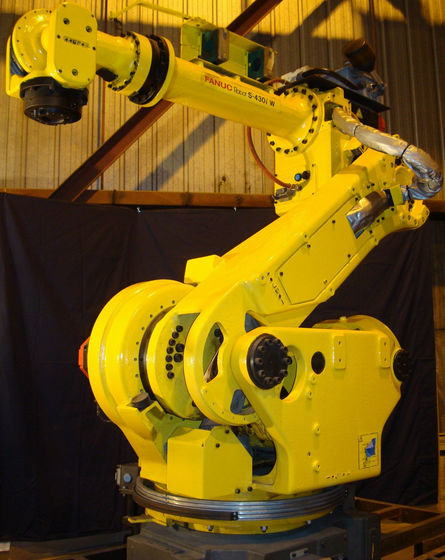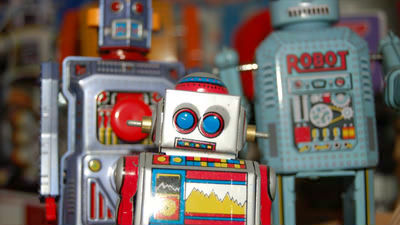A new investigation result indicating that "the robot robs human's work" is announced

ByRobin Zebrowski
Discussions frequently arise from the development of artificial intelligence and robots, "Is it possible to deprive human work?" Meanwhile, in 2016 the Organization for Economic Cooperation and Development (OECD)It is unlikely that the robot robs human's jobAlthough we announced the findings that "Robot robbing human's work", the results of the survey showing clearly that it is publicly announced.
Robots and Jobs: Evidence from US Labor Markets
http://www.nber.org/papers/w23285
Actually, Steve Mnuchin, Robots Have Already Affected the U. S. Labor Market - MIT Technology Review
https://www.technologyreview.com/s/604005/actually-steve-mnuchin-robots-have-already-affected-the-us-labor-market/

US Treasury Secretary Steve Minchin said, "The automation of work by machines will not replace American workers" "(The impact of automation is a story from 50 years to over 100,AxiosIn an interview byTalkingIt was. There are many fields already automated by machines, such as factories and warehouses, but until now there have been no detailed numerical figures etc. that tell us how much employment will be affected by automation. However, Mintin 's prospects are sweet, and the latest survey found that the wave of automation has already affected the workforce in the United States.
The National Institute of Economic Research of the United States analyzed the influence of the robot in the labor market and published reliable data showing how the wave of automation by machine is affecting unemployment and wage. Survey was conducted by Professor Daron Acemoglu of the Massachusetts Institute of Technology and Boston UniversityPascual RestrepoProfessor is investigating how the industrial robot increased during the period from 1990 to 2007 affected the labor market. In the past 18 years industrial robots have increased in the US, and it seems that the employment of 670,000 people has been lost. It was the manufacturing industry that had the greatest influence.

ByKitmondo Marketplace
Analysis considers the impact of globalization and population change. As a result, industrial robots have reduced employment by 5.6 workers per 1000 workers, and it is clear that wages are reduced by about 0.5%. It is said that these figures are getting worse even in certain areas other than big cities.
But the most important thing is that they are all past events. In the survey period from 1990 to 2007, the number of industrial robots is much smaller than the present, and it is difficult to accurately predict future employment reductions and wage declines from data. However, it is clear that employment and wages will be adversely affected by robotic technology that will thrive even more in the future. The problem is Professor Acemoglu says that politicians are "not ready at all" to deal with these problems.
Related Posts:
in Science, Posted by logu_ii







